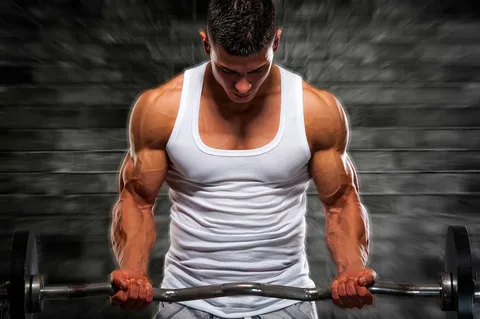Imagine a car running hot with a dry radiator. Its performance plummets, efficiency drops, and breakdowns become imminent. Our bodies, much like that car, rely heavily on a vital fluid – water – to function optimally, especially during the demands of exercise. Just as the car needs a steady flow of coolant, our bodies require adequate hydration to maintain peak performance and optimize recovery. This article delves into the world of hydration, exploring its impact on exercise, highlighting its benefits, and providing practical tips to ensure you stay perfectly “tuned” throughout your fitness journey.
The Symphony of Hydration: Why Water Matters
Our bodies are approximately 60% water, with even higher percentages in muscles and blood. This precious fluid plays a myriad of roles, from regulating body temperature and transporting nutrients to lubricating joints and aiding in digestion. During exercise, these functions become even more critical.
- Temperature Regulation: As we exert ourselves, our core temperature rises. Sweating is our body’s natural cooling mechanism, but this process depletes water reserves. Dehydration throws this system off balance, leading to overheating, reduced performance, and increased risk of heatstroke.
- Fuel Delivery and Waste Removal: Water transports essential nutrients like oxygen and glucose to working muscles, powering your every move. It also flushes out metabolic waste products, preventing fatigue and muscle soreness.
- Lubrication and Joint Health: Water keeps joints and cartilage well-hydrated, ensuring smooth movement and minimizing friction. Dehydration can lead to stiffness, pain, and increased risk of injury.
- Cognitive Function: Even mild dehydration can impair brain function, impacting focus, reaction time, and decision-making. Staying hydrated keeps your mind sharp and enhances your workout experience.
Benefits Beyond the Obvious: The Ripple Effect of Hydration
The advantages of proper hydration extend far beyond immediate performance gains.
- Enhanced Endurance: Studies show that even mild dehydration can significantly reduce exercise capacity. Staying hydrated allows you to train harder, longer, and push your limits further.
- Faster Recovery: Adequate water intake facilitates better nutrient delivery to muscles, aiding in post-workout repair and reducing muscle soreness, allowing you to bounce back quicker and train more consistently.
- Improved Overall Health: Beyond exercise, proper hydration supports various bodily functions, improving kidney function, digestion, and even skin health.
Decoding the Thirst Signal: When and How Much to Drink
Our thirst mechanism isn’t always the best indicator of dehydration. By the time you feel thirsty, you’re already slightly dehydrated. To stay ahead of the curve:
- Drink before, during, and after exercise: Aim for 16-20 ounces of water 2-3 hours before your workout, 6-8 ounces every 15-20 minutes during, and another 16-20 ounces afterward. Adjust based on intensity, duration, and climate.
- Listen to your body: While guidelines are helpful, tune into your individual needs. Consider factors like sweat rate and urine color – pale yellow indicates adequate hydration, while darker shades suggest insufficient intake.
- Electrolyte Replacement: For prolonged or intense workouts, consider electrolyte-containing beverages to replenish lost minerals like sodium and potassium, especially in hot environments.
Beyond Water: Exploring Hydration Options
While water is the cornerstone of hydration, other options can contribute:
- Unsweetened sports drinks: Can be helpful for replenishing electrolytes during long or intense workouts. Opt for low-sugar varieties.
- Fruits and vegetables: Rich in water content and provide additional vitamins and minerals. Think watermelon, cucumber, and leafy greens.
- Coconut water: A natural source of electrolytes, but watch out for added sugars in commercially available versions.
Remember: Consult a healthcare professional for personalized hydration recommendations, especially if you have any underlying health conditions.
Hunter Venturelli’s Story: Hydration’s Turning Point
Hunter Venturelli, a passionate cyclist, often struggled with fatigue and cramping in the later stages of his rides. Despite intense training, he couldn’t quite break through performance plateaus. After consulting a nutritionist, he realized his pre-workout routine of just a cup of coffee was setting him up for dehydration. Implementing a consistent pre-hydration strategy and carrying a water bottle during rides transformed his experience. His rides became smoother, fatigue subsided, and he even clocked in personal bests. Hunter’s story exemplifies the transformative power of proper hydration.
Conclusion:
Hydration is not just about quenching thirst; it’s the fuel that powers peak performance, optimizes recovery, and fuels overall health. By prioritizing hydration before, during, and after exercise, you create a wellspring of potential, unlocking your true athletic potential and paving the way for a healthier, happier you. So, ditch the dehydration blues, embrace the power of water, and watch your fitness journey flourish



